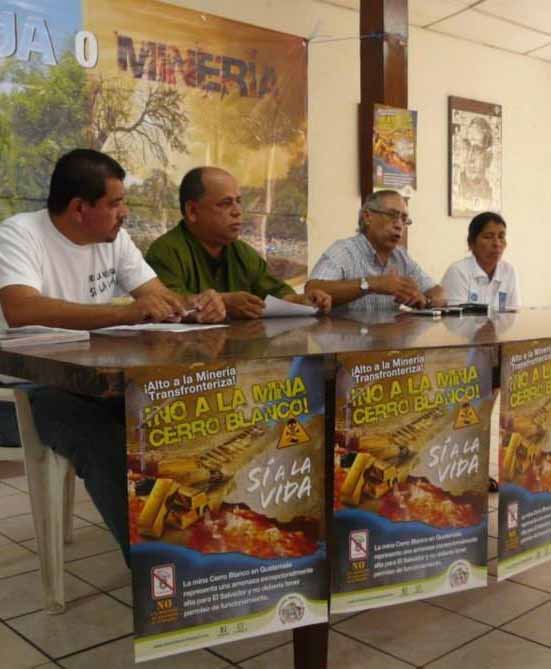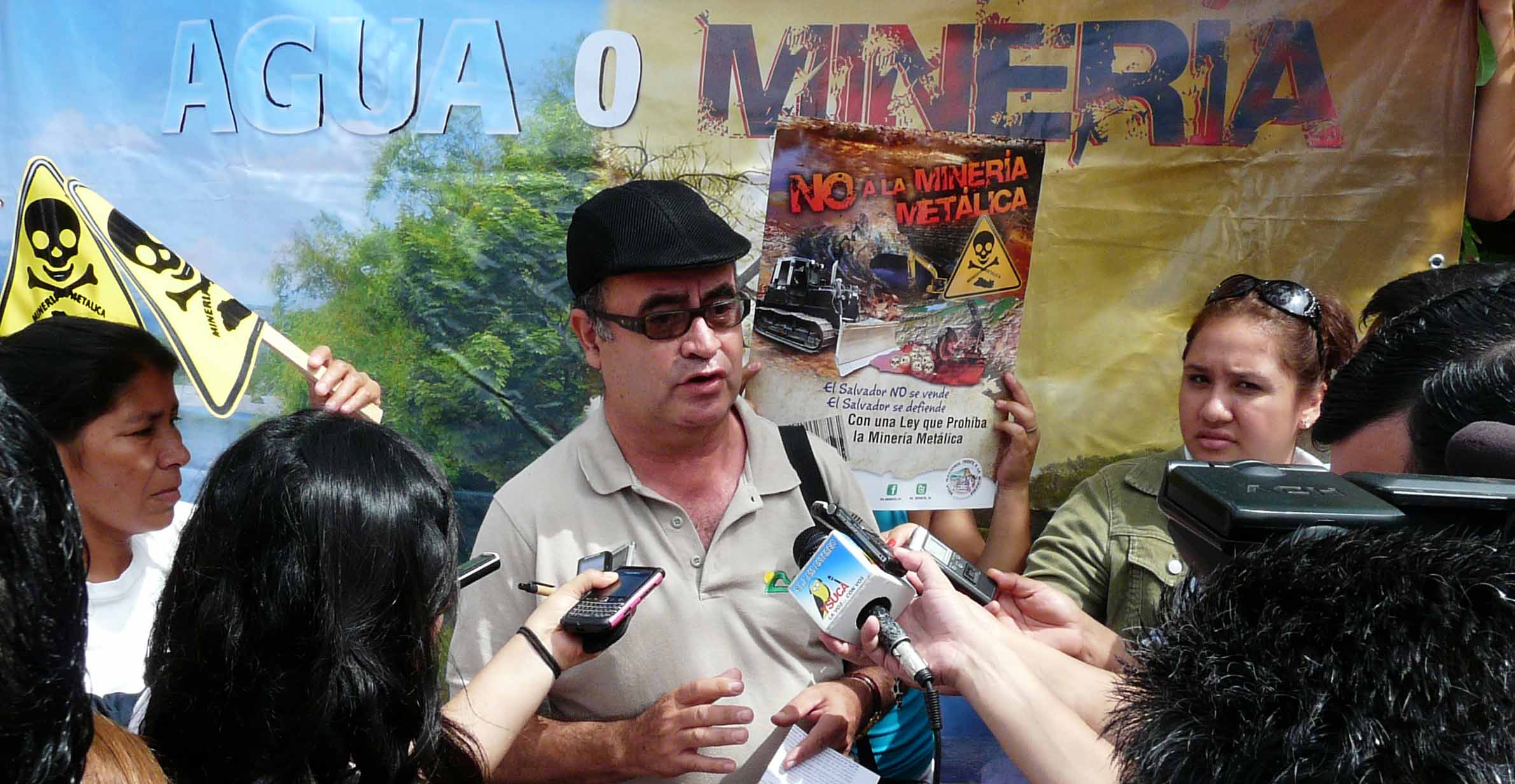Mining in El Salvador exposes the contradiction between human rights and corporate rights under the international investment regime.
 Images by Danielle Marie Mackey
Images by Danielle Marie Mackey
“This is practically an urban country. We’re talking about putting a mine in the middle of a city,” exclaimed Fr. Jose Maria Tojeira from the stage. “Imagine mining in the middle of New York or Paris. That’s what they want to do here in El Salvador. This is… crazy.”
Fr. Tojeira, the ex-rector of one of the leading universities in El Salvador, was giving a presentation during the international “Gold Mining and the Defense of Water in El Salvador” conference that took place in May. The country is embroiled in a battle on the subject: civil society is demanding that the Congress pass a law banning metallic mining, while two North American mining companies are suing the Salvadoran government to defend their right to mine.
Read more ...
- Details
-
Category: Background and reports
-
Published: Friday, 12 July 2013 14:07
How transnational corporations use trade and investment treaties as powerful tools in disputes over oil, mining, and gas.
dowload full report here
By Sarah Anderson and Manuel Perez-Rocha
 In the context of high global prices for natural resources, governments seeking to ensure that their people benefit fairly from these resources and do not suffer from environmentally harmful extractive projects are finding themselves increasingly at odds with transnational corporations.[i]
In the context of high global prices for natural resources, governments seeking to ensure that their people benefit fairly from these resources and do not suffer from environmentally harmful extractive projects are finding themselves increasingly at odds with transnational corporations.[i]
In these battles over resource rights, transnational companies are increasingly using a powerful and relatively new weapon – the right to sue governments in international arbitration tribunals granted under a complex web of free trade agreements (FTAs) and thousands of bilateral investment treaties (BITs).
This report explains the institutional framework that allows global firms to extract enormous profits in international arbitration tribunals. It then documents the increased use of these rights by transnational corporations involved in the oil, mining, and gas industries, particularly in Latin America.
Read more ...
- Details
-
Category: FTAs & ISDS
-
Published: Tuesday, 09 July 2013 18:37
By Erick Cornejo
Translated from: http://www.asamblea.gob.sv/noticias/archivo-de-noticias/consenso-para-reformar-solucion-de-controversias-de-la-ley-de-inversiones#.UdyTHr6-dzg.facebook
 The Economic Commission of the Legislative Assembly agreed today to issue a Favorable Resolution to amend Article 15 of the "Investment Law" which relates to the settlement of disputes.
The Economic Commission of the Legislative Assembly agreed today to issue a Favorable Resolution to amend Article 15 of the "Investment Law" which relates to the settlement of disputes.
The Members of the Legislative Assembly who are part of the commission reached a consensus to delete three subsections of the current regulations and established that "if disputes or differences which may arise between domestic and foreign investors and the state, regarding those investments, made in El Salvador, the parties may appeal to the competent local tribunal, according to current legislation and legal procedures."
These reforms aim to give confidence to the country, create more employment, and to make it more attractive in the area of investment and development.
The President of the Commission, Eduardo Barrientos, said: " we cleaned up Article 15 and now propose that the differences between local and foreign investors may be resolved here in the country, with local law, only as a last resort may these disputes be resolved by international mechanisms".
Moreover, the Member of CD Parliamentary Group, Douglas Aviles, said that "what we have done is to bring legislation in line with the recent Association Agreement with Europe, reforming Article 15 and including an aspect relating to the settlement of disputes which provide that any controversy that is not under a treaty or agreement will be adjudicated through local legislation."
Finally, the FMLN Parliamentary Member, and Secretary of the Commission, Blanca Coto, said: "This day we have strengthened the legal framework, we have given further support to the Government of the Republic of El Salvador for the defense of the interests of Salvadorans, in light of disputes that may result in corporations launching law suits against the Salvadoran state.
Tuesday's session was attended by representatives of the Ministry of Economy.
The Favorable Resolution and the relevant draft decree may be submitted for approval by the plenary Legislative Assembly on Thursday.
 Last week, a Canadian mining company Goldcorp Inc., citing an unfavourable financial context for metal mining investment globally, announced the suspension of three mega projects, among them the emblematic Cerro Blanco project located in Guatemala, only 18 kilometres from the city of Metapan, in the western department of Santa Ana.
Last week, a Canadian mining company Goldcorp Inc., citing an unfavourable financial context for metal mining investment globally, announced the suspension of three mega projects, among them the emblematic Cerro Blanco project located in Guatemala, only 18 kilometres from the city of Metapan, in the western department of Santa Ana.
 PRESS RELEASE
PRESS RELEASE Images by
Images by  In the context of high global prices for natural resources, governments seeking to ensure that their people benefit fairly from these resources and do not suffer from environmentally harmful extractive projects are finding themselves increasingly at odds with transnational corporations.
In the context of high global prices for natural resources, governments seeking to ensure that their people benefit fairly from these resources and do not suffer from environmentally harmful extractive projects are finding themselves increasingly at odds with transnational corporations.